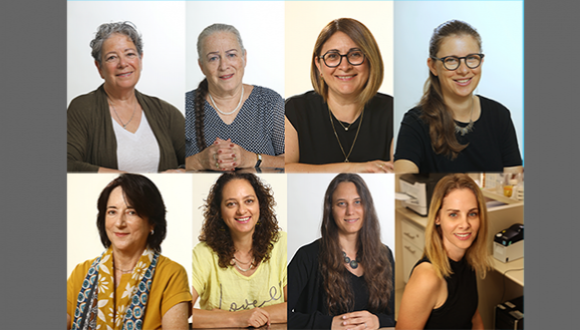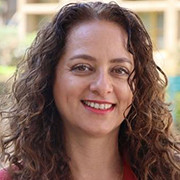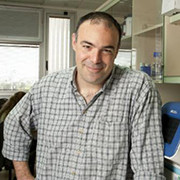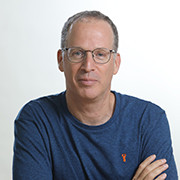"Follow Your Curiosity": The Women Leading the Research at the SBCR
The International Women's Day 2024
(Left to right): Prof. Judith Berman, Prof. Mia Horovitz, Prof. Anat Hershkovits, Prof. Adi Stern, Prof. Orna Elroy-Stein, Prof. Vered Padler-Karavani, Dr. Aldema Sas-Chen, Dr. Ayala Lampel (Photos: Chen Galili)
The Shmunis School for Biomedicine and Cancer Research is proud to have some of the leading women researchers in the Israeli academy, all pioneering groundbreaking research in their fields.
In celebration of International Women's Day, our researchers share the influences that shaped their scientific careers and offer advice to young women aspiring to follow in their footsteps.
Prof. Judith Berman’s research explores how genomes evolve and adapt to cellular stress, through the study of fungi like Candida albicans, the most prevalent fungal commensal and pathogen of humans. "I have always been intrigued by what makes living things be 'alive', and love figuring out the basic ideas that underpin complex interactions. This led to a fascination with how organisms of different types interact with each other, and specifically how pathogens interact with their hosts". Her advice to young women who want to become researchers is to follow their curiosity and nurture it. “Keep asking questions and figuring out how to solve the puzzles they expose. For me, being a scientist is an honor and a privilege".
Prof. Mia Horovitz's research focuses on the molecular biology underlying Gaucher's disease and the role of EH proteins in intracellular trafficking. Reflecting on what steered her towards a scientific career, Prof. Horowitz recalls, "In the third year of high school, we began studying genetics, and it was 'love at first sight.' After high school, I pursued a bachelor's degree and M.Sc. degree in biology as part of the academic reserve. After my military service, I continued to do doctoral and postdoctoral studies. It wasn't until I became a young scientist that I felt prepared to delve into researching genetic diseases, choosing to focus on a prevalent genetic disorder among Jews, Gaucher's disease. If I were to embark on my scientific journey today, I would follow the same path."
Her advice to young women who want to follow her path is “to be aware that the journey is challenging, but remember to never forgo the opportunity to turn our passion into our profession, treating science not just as work but as a hobby. Moreover, every female scientist, like every woman, typically juggles three responsibilities: family, career, and personal well-being. Often, the latter is neglected as she learns to balance career and family life without compromise. Yet, it is achievable."
Prof. Anat Hershkovits, the Head of the Shmunis School, studies the interactions between bacterial pathogens and the cells of their hosts/targets. However, her interest in science started in much larger organisms. "My love for nature and birds brought me into biology studies," she remembers. "There, I found out that bacteria are the most magnificent creatures". Her advice to young women researchers is based on her own experience. "Throughout my studies I always followed my heart. When you do that, you discover that there are no real limits."
Prof. Adi Stern's research interests lie in the rapid evolution of viruses and their hosts. She says that ever since she was a young girl, she always loved solving puzzles and riddles. "The thrill of seeing all the pieces of a puzzle coming together is the main driver of my research until today". The most important advice she has for young women who want to become researchers is to find where their passion really lies. "It's tricky, but worth it!" she promises.
Prof. Orna Elroy-Stein studies the regulation of mRNA translation in mammalian cells in health and disease. "My constant enthusiasm about the molecular mechanisms that drive life, and the passion to discover what is still unknown has led me to engage in scientific research as a profession," she says. Her advice to young women who consider choosing a scientific career is to never doubt their own talent and abilities. "Follow your passion while being prepared in advance for a job that will require a lot of effort, determination, and patience. Always remember that the joy and satisfaction in the moments of discovery are enormous, and fully worth your struggle".
Prof. Vered Padler-Karavani studies the crossroads of diet and the immune system, exploring how our health is influenced by understanding the roles of sugar chains, or glycans, in immunology and health. Reflecting on her journey into science, she describes how "I was captivated by science from courses I took at the university during elementary school, which fueled my ambition to become a scientist." Offering her guidance to aspiring young scientists, she encourages them to "follow your passion, dream big, and work diligently to realize your dreams. You can do it."
Dr. Aldema Sas-Chen studies RNA-based mechanisms of gene regulation and investigates the impact of RNA modifications on cellular processes in health and disease. "From a young age, I was fascinated by nature, observing the world around me with curiosity-especially frogs. I decided to pursue a scientific career because it combines my two passions: I want to understand how the smallest of molecules present in our body shape our behavior and well-being, and I want to share knowledge with others and benefit from interactions with people passionate about their work”. The scientific road is exciting and fulfilling, but it is also full of professional and personal challenges, she says. "So my advice is to always believe in yourself and follow your curiosity. And most importantly, no matter where things take you, try to enjoy the journey".
Dr. Ayala Lampel's lab studies the manufacturing process of biological materials found in nature to design novel biomaterials. "Inherent curiosity, continuous motivation to understand how different phenomena occur in nature. That’s what brought me to pursue a career in science. Later on I started to be specifically interested in understanding the molecular basis of these phenomena". Her advice to young women interested in science, she warns, is a bit corny - but not less true: "be attentive to your natural curiosity and passions, and try to avoid making decisions based on the fear of failing or based on what others might think of your decisions. This holds true across all careers, but it's particularly relevant in academia".





